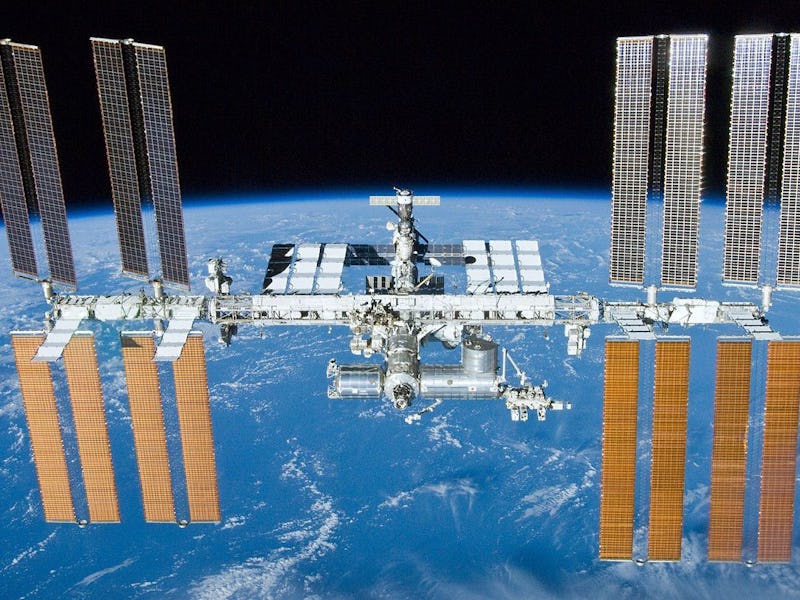If You Give Yourself a Flu Shot in Space, What Happens?
An unprecedented vaccine study will give us insight into how the body's immune system reacts to the pressures of space travel.

Even in space, there’s nowhere to hide when it comes to the flu.
We tilt on the gaping maw of flu season, a nightmare not fully experienced until you’re forced to rely on public transit, crammed ass to elbow with the sniffling masses. What place could be further from that subterranean death carriage than the space station? Sterile, barely populated, thousands of miles from the hacking crowds. But NASA’s running a vaccine study that shows how they change in the body while in space.
Astronaut Scott Kelly gave himself a flu shot in space today.
The study centers around twin brothers Scott Kelly, who you might recognize from his glorious Twitter feed of life on the International Space Station, and twin brother Mark, a retired astronaut.
The wellness of each was studied before Scott launched last March and both men were given clean bills of health — but scientists estimate it’s now Scott’s immune system that should be having problems, even though he’s isolated.
That’s because there’s nothing for Scott’s immune system to build itself up fighting. Both brothers have just received flu shots, but Scott’s body could react much differently partially because of that lack of stimulus, and partially because in the zero gravity and radiation of space travel important T-cells — the generals of the immune system — change in shape and function. Scott’s post-vaccine blood sample will be frozen until it can be tested back on Earth, and another dose will be preserved after a final round of vaccinations in November 2016.
The test will let researchers examine similar immune systems in ways that have never been possible, not just in how well Scott’s body is able to fight off infection but how quickly he recovers once on Earth. And if we ever want to survive a truly long-term trip into space — say, to Mars for instance — we’re going to need to know how to avoid infections.